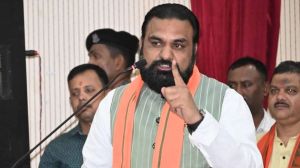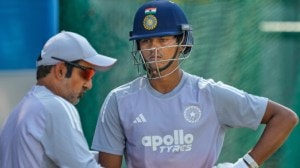I didnt expect a fatwa from Gandhinagar
Joseph Lelyvelds book Great Soul: Mahatma Gandhi and his Struggle with India created a furore and got banned in Maharashtra and Gujarat. In an email interview with Mandakini Gahlot,Lelyveld talks about writing the book,the reaction it got and Gandhis continued relevance for India
When did you start planning your book on Gandhi? How did you go about researching it?
When I stepped down as editor of The New York Times nearly 10 years ago,I already had the idea of writing about Gandhi. My first thought was to follow Gandhis footsteps from his birthplace at Porbandar to his death in the garden of Birla House. My selfish thought was that this would be a way of getting me back into South Africa and India,two countries I had covered as a correspondent. The result might have been something like Bernard Imhaslys very fine Goodbye to Gandhi?: Travels in the New India.
But then,in preparation,I spent a half-year reading Gandhi and his interpreters. It struck me that there was room for the book I then attempted to write,one that concentrated on the evolution of his social values in his South African years and the way they influenced his efforts on his return to India.
Did you expect the sort of reaction that your book received from certain quarters in India?
I certainly had not thought that something in my book might go viral on the internet or that it would be denounced,let alone banned,by people who had never seen it or made the slightest effort to weigh its contents. And I didnt expect to be the target of a fatwa from Gandhinagar.
Did you worry that the chapter exploring Gandhis correspondence with Hermann Kallenbach could create a furore?
Not really. I find the volume of Gandhis letters to Kallenbach the sixth supplementary volume to the Collected Works,published by the Government of India utterly fascinating. The letters were not published until 1994; that is,long after many of the best-known Gandhi studies,including Erik Eriksons Gandhis Truth,had appeared. I thought they helped clarify a matter that Gandhi left murky and that has remained murky,the physical distance he put between himself and his family and the bulk of the Indian community in South Africa over a period of six years,1906-1912.
Have you received any personal feedback from Indians who have read your book?
Yes,I have. I sent advance copies of the American edition,which appeared only last week,to several friends in India and Indian scholars I met along the way. Im grateful for their support and positive comments.
Has India stopped questioning Gandhi as a man and as a leader?
I think India rightly reveres Gandhi for his steadfastness and fearlessness but it has not been conspicuously attentive to his most urgent teachings on social issues. This was true as well in his lifetime and was the reason he went through the motions of resigning from the Indian National Congress 14 years before Independence. It will always be necessary to reconsider Gandhis life and writings in the perspective of contemporary problems and pressures. But I dont see why it should be necessary to question him,if by questioning him you mean approach him with a heavy dose of scepticism. What we can question are the countless interpretations he has inspired. Needless to say,that has to include my own recent entry.
Do you think most Gandhi biographers have stopped short of really digging up the Mahatmas life and views? Which were the Gandhi biographies that you enjoyed reading?
Ive enjoyed and learned from a number of Gandhi books. I found Pyarelals account Last Phase and Nirmal Kumar Boses My Days With Gandhi especially moving. Narayan Desais four-volume biography,which I read in Tridip Suhruds recent translation from Gujarati,is stirring and dependable. I like Rajmohan Gandhis biography more than he seems to like my book. The list of first-class academic studies is quite long. I paid particular attention to the work of Bhikhu Parekh. Gandhis own autobiographical writings have to be any students point of departure. Theyre the basis of what Ive called the received narrative. But they cannot be the last word.
Is there anything about Gandhis life that surprised you,or stayed with you long after the book was written?
The term Ive come up with for what impresses me most about Gandhi is his moral ambition. I admire his persistence,his striving for selflessness,his profound belief in service.
Do you think Gandhi and his teachings are still relevant?
I think Gandhi is especially relevant when one thinks of the bottom 25 or 30 per cent of Indias population,the people left out of the economic surge of recent years. Anyone concerned with issues of social inequality and mass poverty has to find Gandhi relevant. In that sense,I argue that he still serves as Indias social conscience.



- 01
- 02
- 03
- 04
- 05




























